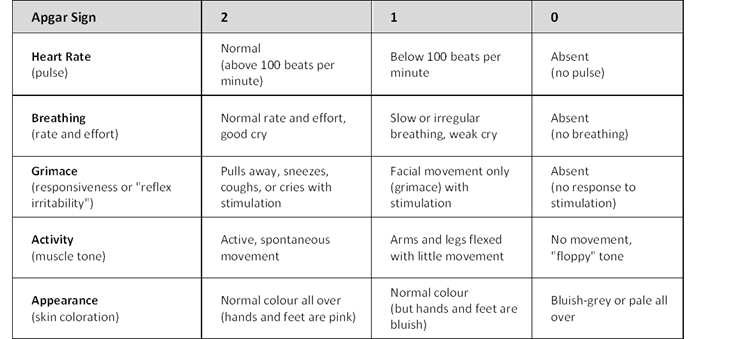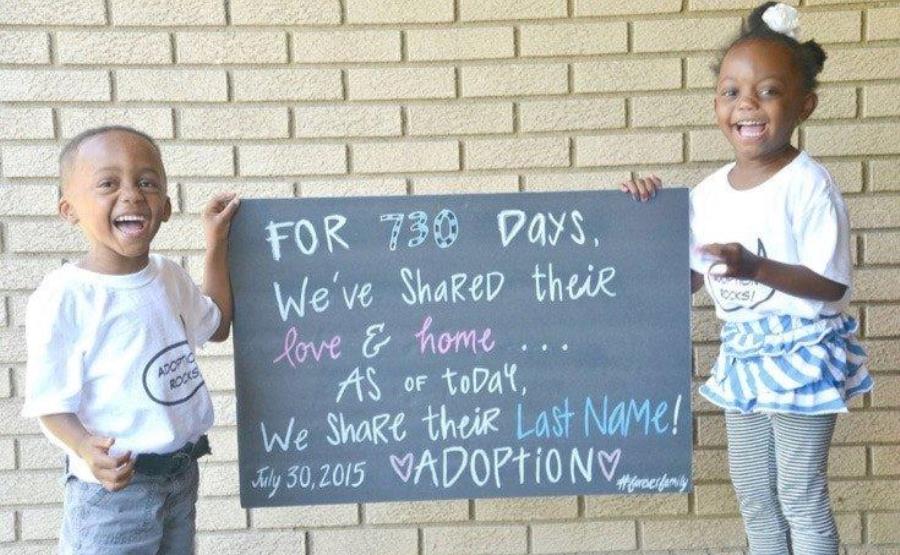How to keep my child safe
Keeping children safe while out and about
All children can be vulnerable sometimes, and as a parent it is only natural to worry about their safety. If you are worried, you can help to protect your young children and teens with these common-sense tips.
Protecting young children
Statistics show that crime against young children by strangers is rare. Even so, these seven tips can help protect your child:
- tell your child to avoid talking to people they don't know when you're not around
- make sure your child knows never to walk away with strangers
- make sure your child understands that they should always tell you if a stranger approaches, and never to keep this secret
- if your child is travelling alone, tell them to sit near other families on the train or bus
- if your child has to use a lift – tell them only to use lifts with friends, and not to feel worried about getting out if they are uncomfortable about someone else being in there
- if your child gets lost, they should ask for help from a police officer, another grown-up with children or someone working at a nearby shop
- have your children learn their address and telephone number by heart
While you are out with your children
Sometimes, young children can still be vulnerable even if you are with them. Following these simple precautions should give you peace of mind:
- try to keep your children within your sight or another adult's whom you trust
- use reins for your toddler - these will keep your child nearby even if you get distracted
- when out and about visiting places, always arrange a meeting point for you and your child, in case either of you get lost
- make sure you all travel together in the same train carriage, or have seats close together on a bus or coach
- always go with your child into public toilets
- remind your child never to talk to strangers, even if you are nearby
Keeping teenagers safe
More crimes are committed against teenagers than any other age group, but here are some things they can do to keep safe on the streets:
- stay alert, and keep electronic devices turned down or off, so they can hear what's going on around them
- stick to busy, well-lit roads, and avoid short cuts through alleyways
- if your child thinks someone is following them, they should cross the road or go to a place with lots of people around, like a bus stop or shop
- your child could carry a whistle or shrill alarm around their neck or on a key chain to warn off suspicious strangers
- when travelling by bus, your child should try to use bus stops on busy roads
- if someone tries to take something from your child, tell them never to fight
- tell them to keep mobile phones and other valuables out of sight, and to turn off their mobile phone ringer to avoid attracting attention
- don't let your child carry weapons because they are more likely to be used against them, and it's illegal
- encourage your child to speak up if they are being bullied or feel they might be in danger
- Knife crime
- Gang crime
Translation help
How to translate this pageHelp improve this page - send your feedback
You must have JavaScript enabled to use this form.
report a problem
leave feedback
ask a question
Report a problemWhich problem did you find on this page? (Tick all that apply)
A link, button or video is not working
There is a spelling mistake
Information is missing, outdated or wrong
I can't find what I'm looking for
Another issue
Messages
Tell us more about the problem you're having with the nidirect website.
Enter your feedback
What is your question about?Choose a topic for your question: - Select -AnglingBenefitsBirth certificatesBlue BadgeCareersCompensation due to a road problemChild MaintenanceCivil partnership certificatesCoronavirus (COVID-19)COVID vaccination certificateCriminal record checks (AccessNI)Death certificatesEducational Maintenance AllowanceEmployment rightsHigh Street Spend Local SchemeMarriage certificatesMotoringnidirect accountPassportsPenalty Charge NoticesPensionsPRONI - historical recordsRates or property valuationProblems with roads and streetsSmartpassMy question is about something else
What to do next
How can I keep my child safe as he grows up?
And yet it doesn't help our children to over-protect them.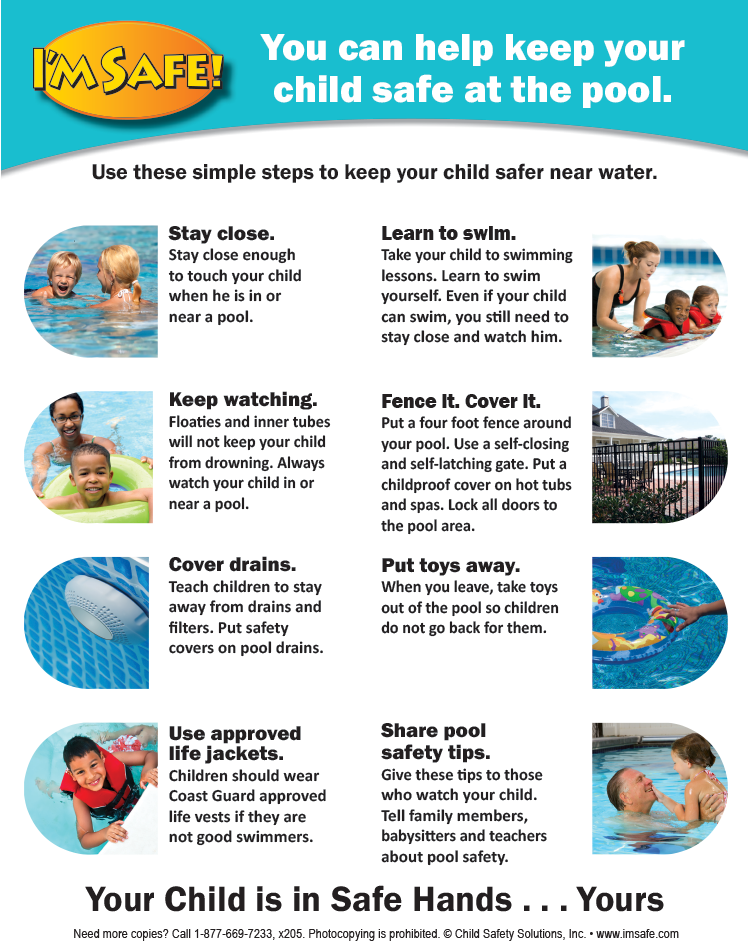 It's our job to gradually give our children more and more independence, which means that we need to teach them how to keep themselves safe in the world without undermining their trust that the world is a good place.
It's our job to gradually give our children more and more independence, which means that we need to teach them how to keep themselves safe in the world without undermining their trust that the world is a good place.
it's our job to gradually give our children more and more independence, so we need to teach them how to keep themselves safe in the world without undermining their trust that the world is a good place.
So here you are, one dozen basic Family Safety Rules that every parent can implement, that work to help you to keep your child safe as you let go of their hand.
1. Prioritize Connection.
The best way to keep your child from being abused by predators, bullied, using drugs, becoming sexually active before they're ready -- virtually every risk factor you can think of -- is to maintain a close relationship with them."
Every time you respond to your child's cry of hunger or pain or discomfort, you raise a child who knows he will be heard," say safety experts Ric Bentz and Christine Allison.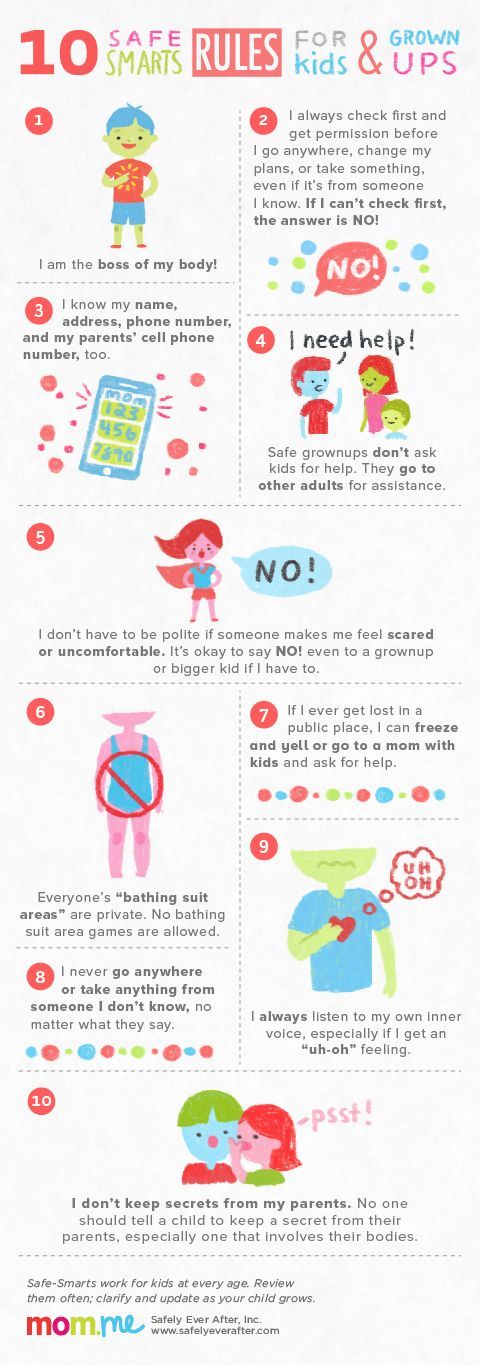 Children who feel heard and taken seriously are much more likely to stick up for themselves, to fight back, and to ask for help.
Children who feel heard and taken seriously are much more likely to stick up for themselves, to fight back, and to ask for help.
Put down your phone and listen. Sit down to dinner together as many nights as you can. Make sure you have one on one time -- unstructured (this isn't for homework or reading to them), to see what bubbles up and help your child express problems and upsets -- with each child every day, preferably for at least 15 minutes with each child.
If you notice that your child is defiant or distant, make it a high priority to re-connect: Why You Need To Re-Connect Daily with Your Child.
2. Teach your child to cross the street.
It's so automatic for us that we often don't realize that children need to be taught to cross the street safely. When your child is young enough to hold your hand, stop every single time and announce "Let's cross safely. First check the signal -- it shows the person walking, so we can cross.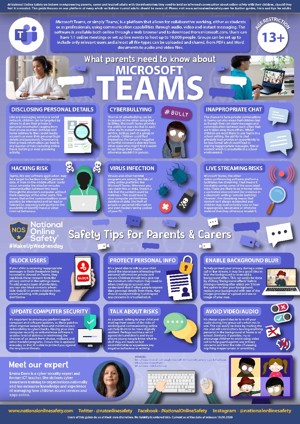 Now we look left, then right, then left again. Any cars? Okay, now we can cross!"
Now we look left, then right, then left again. Any cars? Okay, now we can cross!"
As children get older, they often rebel against having their hand held. If that happens, give your child some control. Ask him to take charge of the ritual and direct you; he can hold on to your purse strap or wrist. By the time he can cross by himself, safe habits will be engrained.
Needless to say, looking at your phone while you're crossing the street is terrible modeling for your child. Be sure once he's old enough for a phone, he has the discipline to put it away while crossing the street-- just like you do.
3. Give your child the tools to protect them from bullying.
Bullies prey on children whom they perceive to be vulnerable. The best way to keep children from being bullied is to make sure they have high self esteem and strong relationships at home and with peers.
Bullying behavior often begins by "testing the waters" with a mean remark, to see if they can goad the target child into hurt or upset.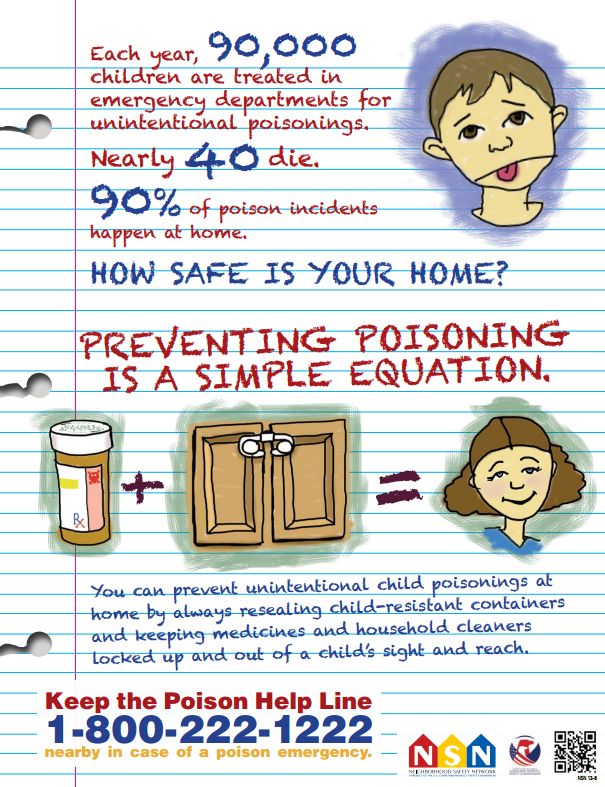 If your child is being bullied, role-play with him how he can stand up to a bully with quiet dignity and walk away. Kids need to be reassured that there is no shame in being frightened by a bully, in walking away, or in telling an adult and asking for help. Bullying situations can escalate, and saving face is less important than saving their life. For more on protecting your child from bullying, see Empower Your Child Against Bullying.
If your child is being bullied, role-play with him how he can stand up to a bully with quiet dignity and walk away. Kids need to be reassured that there is no shame in being frightened by a bully, in walking away, or in telling an adult and asking for help. Bullying situations can escalate, and saving face is less important than saving their life. For more on protecting your child from bullying, see Empower Your Child Against Bullying.
4. When your child goes to someone's house on a playdate, be sure you know the family, and watch your child for cues about what's happened.
Get to know the parents at households where your child spends time. Talk to him about what goes on at his friends' houses. Are the kids unsupervised on the computer? Allowed to stroll up to the store alone? Would he be able to recognize if his friend's mother was inebriated? Would he know what to do if his friend's father touched him inappropriately? What if his friend suggested they look at porn, or play a new "secret" game involving touching, or sniffing markers?
Before your child plays at a new friend's house, ask if they keep guns, and if so, how they are secured.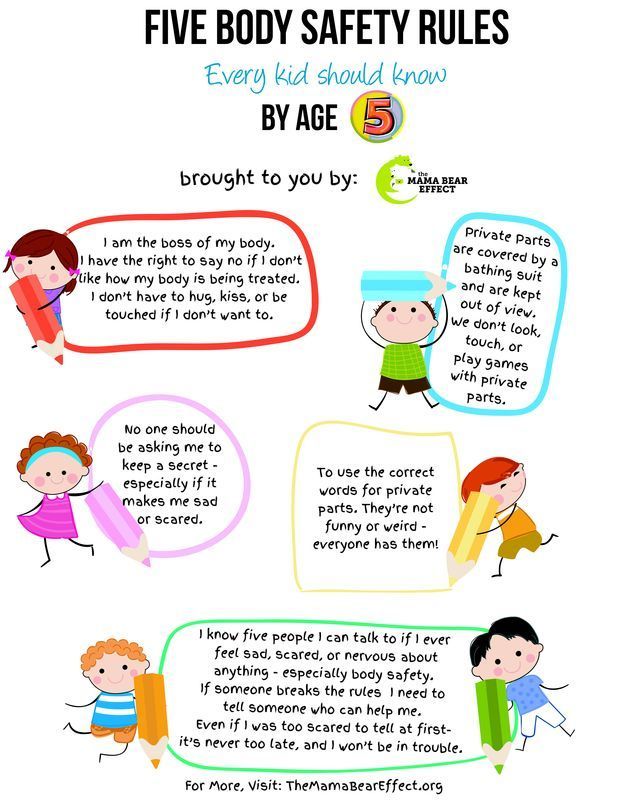 Teach your children to leave any room and house immediately if a gun appears – loaded or not. It would be great if your child can say "I'm not allowed to be in a room with a gun," but your child will be under great social pressure at that point, and that invites a discussion that your child will then get sucked into. Any child old enough to be on his own at a playdate understands social lies and will be grateful for your permission to say something like “Oops, I just remembered I have a dentist appointment!”
Teach your children to leave any room and house immediately if a gun appears – loaded or not. It would be great if your child can say "I'm not allowed to be in a room with a gun," but your child will be under great social pressure at that point, and that invites a discussion that your child will then get sucked into. Any child old enough to be on his own at a playdate understands social lies and will be grateful for your permission to say something like “Oops, I just remembered I have a dentist appointment!”
5. Instead of teaching "Stranger Danger" teach kids to trust their instincts and stand up for themselves.
Teaching your child to be afraid of strangers does not actually protect your child. Most sexual predators are known to the child. Instead, teach that most people are okay, but there are a few people out there who do bad things, and could hurt her. She needs to be told explicitly that it is more important to stay safe and to trust herself than to be polite or nice.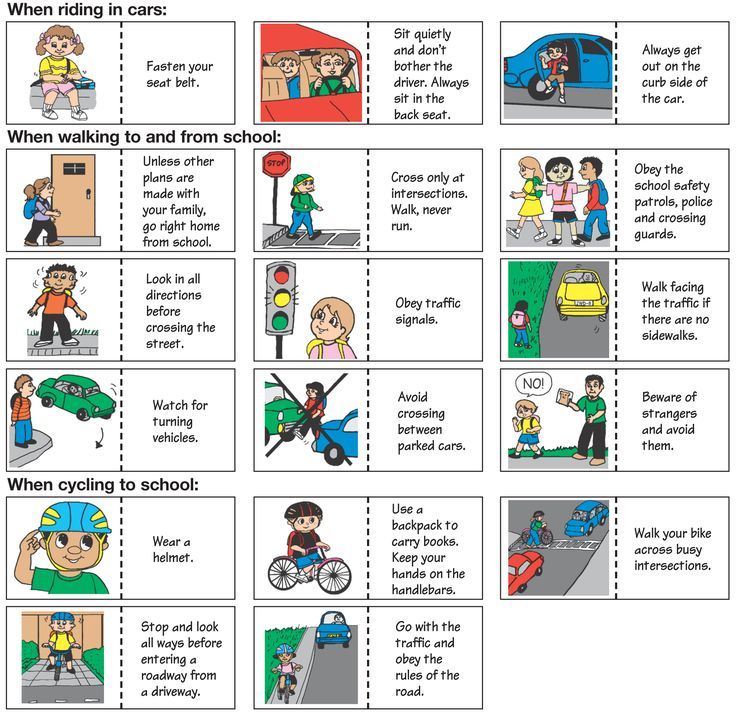 It is okay for her to question, disobey, and even run away from someone whose behavior is making her acutely uncomfortable.
It is okay for her to question, disobey, and even run away from someone whose behavior is making her acutely uncomfortable.
Predators give signals; your child just needs your support to trust herself in reading them. Teach your child what constitutes improper behavior on the part of an adult, for instance, that it is inappropriate for adult strangers to offer children treats or to ask them for directions, and their reaction should be to walk away immediately, and always to fight back and shout "Help me! This is not my parent!" If she's in a public place and gets worried, teach her to run to a mother with a child, who can generally be counted on to help.
6. Give your child the tools to protect them from sexual abuse.
The statistics are that one out of every three girls will have suffered some unwanted sexual touching by the time she is sixteen. But don’t assume only girls are sexually molested; the stats for boys are almost as bad, one out of six.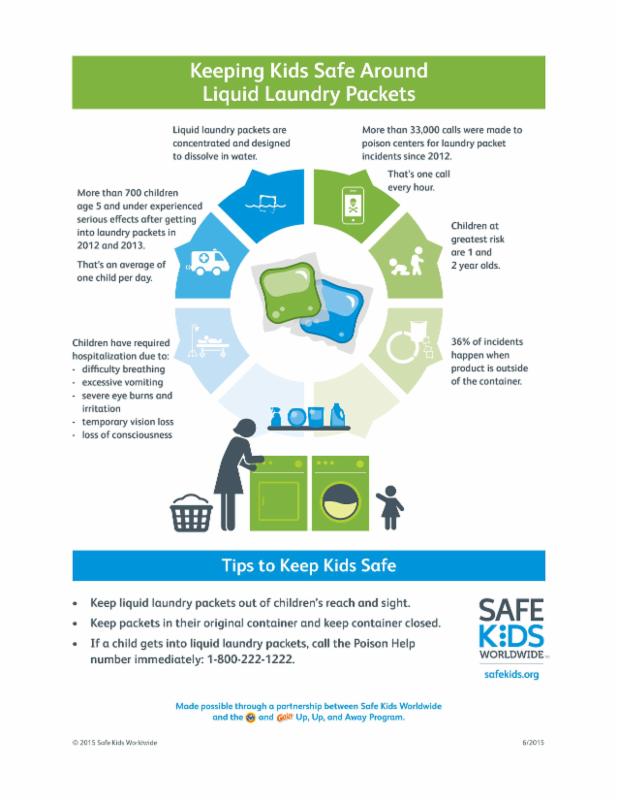 According to the National Center for Missing and Exploited Children, someone the child knows and trusts usually perpetrates child molestations, so teaching "Stranger Danger" completely misses the point and does not protect children. Instead:
According to the National Center for Missing and Exploited Children, someone the child knows and trusts usually perpetrates child molestations, so teaching "Stranger Danger" completely misses the point and does not protect children. Instead:
- Teach Consent. If you want your child to stand up for herself in an abuse situation, it's critical that she be allowed to make her own decisions about who touches her body from an early age. Raise both boys and girls with the house rules that "We ask people before we touch their body" and "When someone says STOP!, we stop." Don't "steal" kisses or hugs if your child says no. Never force your child to be touched by a relative or friend if she doesn't want contact. She must be respectful, and you can ask her to blow Grandpa a kiss instead of giving a hug, but she must be in charge of her own body.

- Teach your child that in your family, no one ever keeps secrets. Molesters usually begin "grooming" by seducing kids into complicity with mild secrets: "Don't tell your mom I gave you candy." Your child needs to know that anytime anyone asks her to keep a secret, she is to tell you immediately. This applies to kids as well as adults, since children who have been inappropriately touched often "act out" that trauma onto other children. In fact, I often hear that another child, older in years or experience, is the one who "teaches a secret game" to a child, with tragic results. Make sure your child knows he can tell you anything, and that you will love him no matter what he's done.
- Educate. Teach your child that every part of her body covered with a swimsuit is private, belonging only to her.
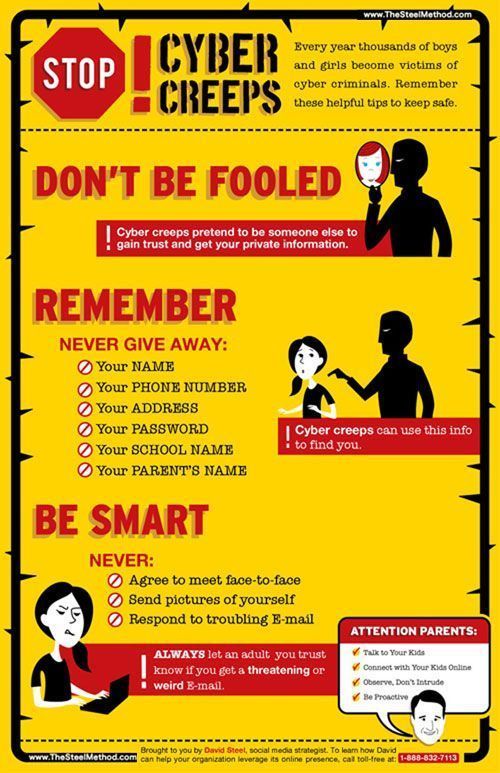 Every child should have (and be regularly read) books like No Means No by Jayneen Sanders and My Body Belongs to Me by Jill Starishevsky. Teach your child that no one – no adult, no child, not even her parents, NO ONE – should ever touch her in ways that make her uncomfortable.
Every child should have (and be regularly read) books like No Means No by Jayneen Sanders and My Body Belongs to Me by Jill Starishevsky. Teach your child that no one – no adult, no child, not even her parents, NO ONE – should ever touch her in ways that make her uncomfortable. - Protect. Don’t leave your child with anyone, even your boyfriend, unless you completely trust them. The good and bad news about abuse is that most of it, statistically, is not perpetrated by strangers. It happens at the hands of family members or the mother's boyfriend. Almost all the rest is perpetrated by trusted intimates such as coaches, religious leaders or teachers. Bad news? Yes, these are people your child trusts. But it’s good news because it’s a risk you can usually avoid, if you trust your instincts and pay attention to your child. This is just one of the many reasons that stepparents should never have the responsibility of disciplining their partner's children.
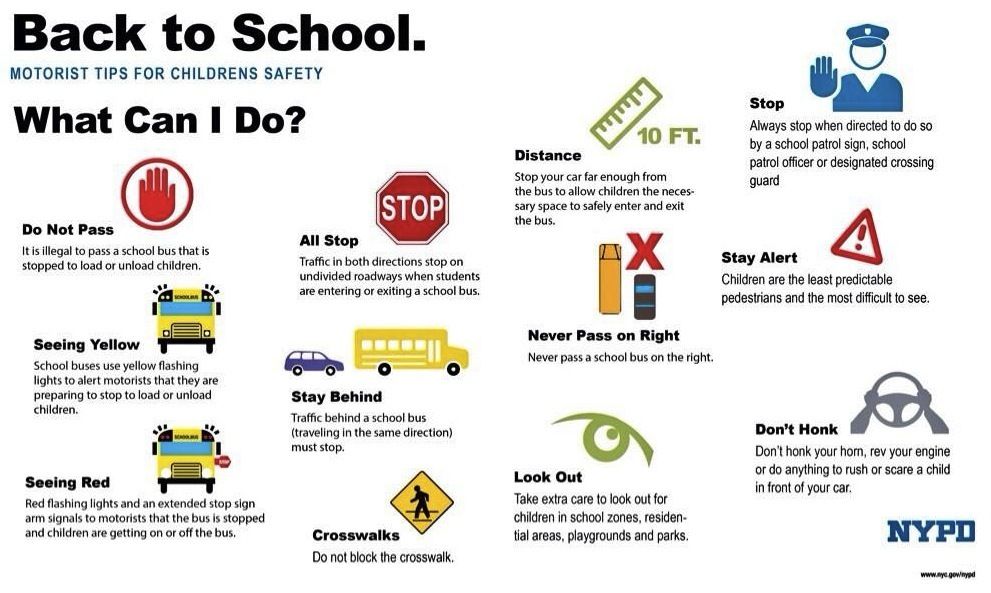
7. Every child should know how to swim.
And be sure your child knows NEVER to dive into water that she has not already personally established to be deep and safe. Since toddlers are most at risk of drowning, supervision is critical near pools or creeks, and of course when a bathtub has water in it.
8. Make helmets non-negotiable for cycling, skating or skate-boarding.
They reduce the risk of brain injury by 90%.
9. Cars are dangerous.
If you are transporting a little one in the back of your car, train yourself to check the car before you get out to be sure your child is out of the car, so you don't space out and forget a sleeping child – horrible to even think about, I know, but we're sleep-deprived parents and every year, babies and toddlers die when they are left in cars.
Train your child to buckle up. Teach them to get out of any car immediately if the driver is drunk. Role play with them what they can say to get out of the car and to a safe place.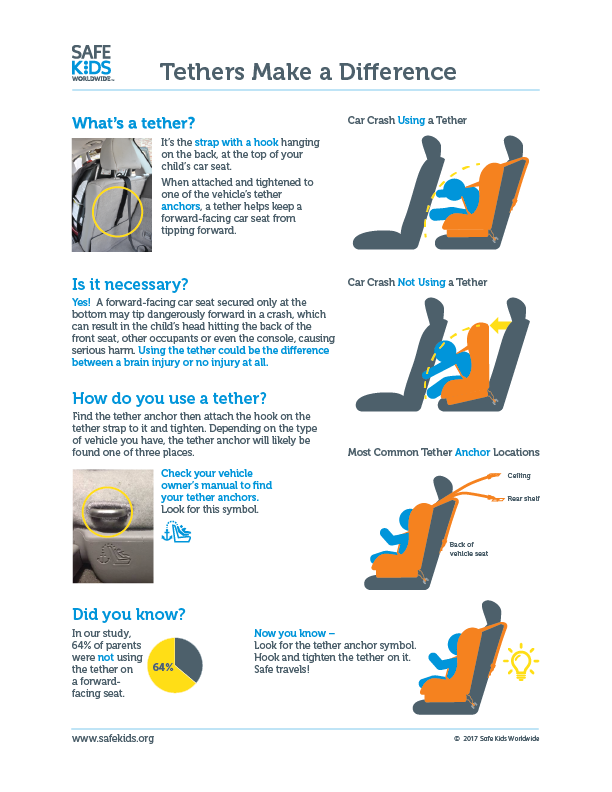 (Again, “I’m carsick! I'm going to throw up! Stop the car quick!” may not be strictly true, but will be a lot easier for your child to say than "You're behaving erratically and I think you may have been drinking. Please let me out of the car.") Make sure that she knows she can always call you for a ride regardless of the situation.
(Again, “I’m carsick! I'm going to throw up! Stop the car quick!” may not be strictly true, but will be a lot easier for your child to say than "You're behaving erratically and I think you may have been drinking. Please let me out of the car.") Make sure that she knows she can always call you for a ride regardless of the situation.
Car accidents are the leading cause of death among teens. Once he starts driving, make sure he hears any personal stories you have about kids who've died in car accidents; that story could keep him alive. When you see a news story about an accident caused by a driver texting, discuss it at the dinner table. Admit that you're tempted, too, but role model turning off your phone and putting it in your bag in the back seat. (Need directions? Print them out in advance or pull off the road to check them.)
10. When your child begins using public transit, ease into it.
First, travel with him.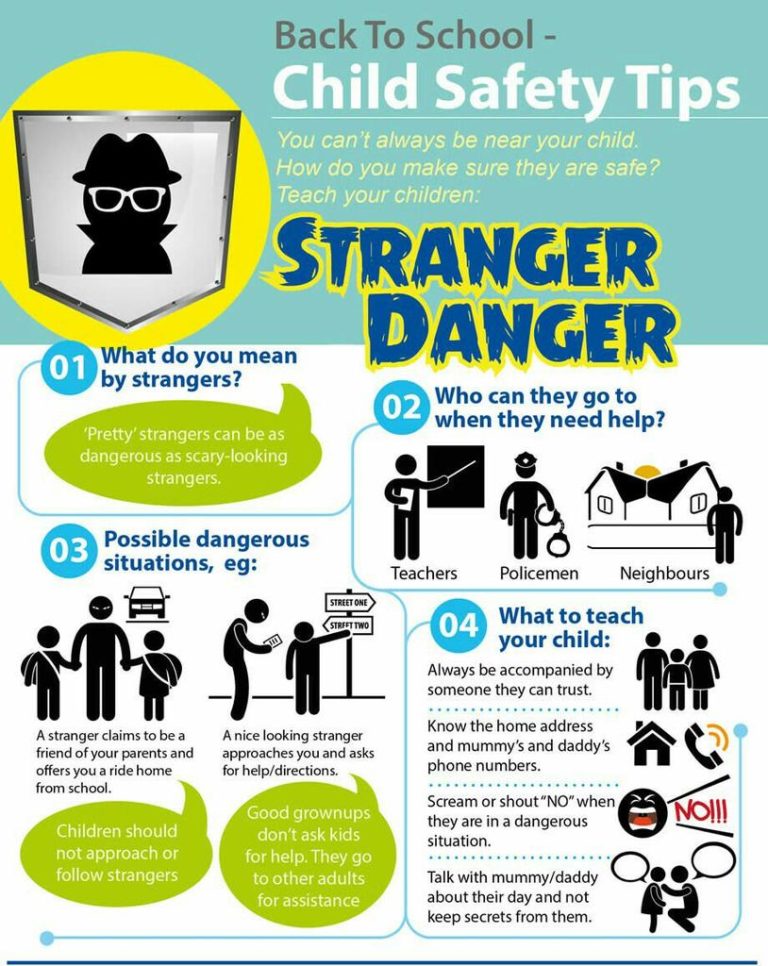 Then, stay near him but let him travel "alone. " Then, let him travel with a friend. Role play like crazy: What happens if he and his friend get separated? What if someone pulls a knife and demands his money? (Yes, this happened to my 13 year old on one of his first solo subway trips.) What if his cell phone falls on the subway tracks? What if some guy stares at him and it gives him the creeps? Buy him a cell phone and have him call you before he gets on the bus and after he gets off. Be sure he doesn't use his phone or other electronics en route; they make him a target.
Then, stay near him but let him travel "alone. " Then, let him travel with a friend. Role play like crazy: What happens if he and his friend get separated? What if someone pulls a knife and demands his money? (Yes, this happened to my 13 year old on one of his first solo subway trips.) What if his cell phone falls on the subway tracks? What if some guy stares at him and it gives him the creeps? Buy him a cell phone and have him call you before he gets on the bus and after he gets off. Be sure he doesn't use his phone or other electronics en route; they make him a target.
11. The best way to keep your child safe is to help him develop good judgment.
There is no substitute for supervision and knowing what's going on in your child's life, but as your child becomes increasingly independent, he'll need to be aware of his own instincts about what's safe, and follow them. Unfortunately, the brain of a teen is primed to be influenced by peers, so he can easily override that "still, small voice within" if all the other kids are doing something risky. Daredevil behavior is bad enough in a six year old, but in a sixteen year old it can be deadly. Help your child develop good judgment and social intelligence, so he can resist the lure of social pressure when he needs to.
12. Talk with your child constantly – and listen more than you talk.
Listening keeps you connected and helps your child feel safe. But it also helps your child talk to you more, and when you get kids talking about something, they're thinking about it. So introduce topics that will help your child think, reflect, and develop good judgment. Ask questions, like:
- What do you worry about the most?
- If you got into really big trouble, how do you think I would respond?
- What are the different kinds of courage? How do you define bravery?
For lots more questions to get good discussions going, see 255 Conversation Starters for Family Discussions.
How to protect a child on the street
Fresh number
RG-Nedel
Rodina
thematic applications
Union
Fresh
03/11/2015 17:48
Category:
Spring break is approaching, the weather is getting better, schoolchildren tired of sitting at their desks are drawn to the street.
According to law enforcement statistics, this is the most dangerous time in terms of incidents involving children. On the one hand, "we are already big", and on the other - an objective reality. Activists of the Lisa Alert search squad, who constantly help children who have disappeared in the city or the forest to return home, have formulated 15 simple rules for parents, following which will help make the life of a child in a big city safer without limiting his freedom beyond measure.
Naturally, they will work, provided that the child does not run across the road at a red light, and when leaving the house, he will have a charged phone in his pocket.
1. Dress your child in bright clothes
Firstly, it makes life safer: drivers on the road will be able to notice in time, and it will stand out in any crowd. Spies and scouts should be invisible. Secondly, it is easier to find a child in bright clothes.
2. Learn the name and coordinates
A child claiming independence must know their full name and surname, home address, parents' names and how they can be contacted. It seems obvious, but often a frightened and confused kid lost in the city cannot answer even the simplest question. You can, of course, sew a business card of mom or dad to the lining of the jacket. But memory is still more reliable than paper.
3. Control social networks
The child's activity in social networks should be monitored as carefully as his behavior in real life. Find out his nickname, add to your "friends", make sure that all important information about the family in his profile is hidden from prying eyes.
4.
Build your relationship with your child so that he shares with his parents all his observations, tells about everything that surprised him, confused him, left an unpleasant impression. Learn not only to listen, but also to hear your child. Perhaps this will prevent potentially dangerous situations in advance. By the way, children for whom parents have become real older friends are less likely to get into trouble. "Dangerous adults" more often choose as a victim of insecure, depressed and lonely guys. With those who feel a strong family rear behind them, they usually prefer not to get involved.
5. Go through all the children's routes
Prepare your child for possible surprises on the way to school, circle, teacher, grandmother. Pay attention to places where you can wait out the threat, seek help. If you need to travel by transport, consider alternative routes in case the metro station is closed, a bus or trolleybus crash.
6. Do not walk alone
Another useful habit is to go everywhere with one of your friends. If you happen to travel around the city alone, then try to avoid empty and deserted places. It is safer to walk through the park if a group of people are walking nearby, and it is better to wait for the bus at the bus stop in the company of fellow travelers. In no case should you come close to an unfamiliar car, even if they called out from there with a completely harmless question.
7. Save contacts
Meet the parents of your child's friends, club teachers and section leaders. Write down their contact numbers. They will come in handy when the son or daughter does not come home on time, and honorably does not answer the calls of her phone.
8. Parents decide everything
Another important rule: whoever calls and wherever invites the child, he has no right to take even a step aside without the permission of the parents. Did a school friend call after class or an unfamiliar aunt on the street asked to help cure a sick puppy? The correct answer in any case is the same: "Now I will ask my parents if I can do this. "
9. "No!" and all
Half of the misfortunes could not happen if all children were able to clearly say in time: "No!". When someone, even a friend or relative, offers to do something that causes internal protest or embarrassment, one must refuse. This is a completely normal reaction. If a person insists and tries to take it “weakly”, it means that he has definitely planned something unkind.
10. Check-in and check-out
Another seemingly obvious rule that many for some reason neglect: parents must know where the child is at any moment. Left the school - called. Drove to the tutor - again a call. Finished classes and went home - reported. Mobile communications allow this.
This security system is also known as the "Three K's Rule". It says that every time a child goes somewhere, parents need to know the answer to three questions: WHERE he is going, WHO is accompanying him or to whom he is going, and WHEN he should return.
11. Rehearse
It is very important that a child, having got into an unpleasant situation, does not get confused. So talk about the most likely scenarios. What to do, where to run, who to contact in this or that case. And we are talking not only about criminal situations, but also about the most vital ones. A bicycle or rollers broke down, got injured, mixed up trams… There is an optimal way out of every situation, sometimes you need to ask for help. You just need to know who you can safely contact and what you can count on. Separately, it is worth rehearsing a call to the police or an ambulance. Figure out what and how to say to the duty officer who accepted the call so that he does not consider the call a childish prank.
12. Safe strangers
Sometimes the help of adults is absolutely necessary for a little person: to ask for directions, to clarify about transport, to help with clothes…. Yes, there are few things that can happen. According to the guys from "Liza Alert" it is most reliable to contact the police, employees of shopping centers, especially those who wear a name badge, or passers-by with small children.
13. Meeting place
If you are going to a big store with your child, walk around the city center, museum, exhibition or any major event, be sure to clearly agree where you will meet if you suddenly lose each other in the crowd. Make sure the child is able to find or at least accurately name the meeting point if they have to ask the staff for directions.
14. When not to obey
A good and well-mannered child has every right to be disobedient if one of the adults or older children forces him to do what he does not like or seems wrong. Only parents have the right to coercion, and even that is limited by certain limits.
15. Protect yourself
Explain to the child that when someone else forces him to do something against his will, drags him somewhere, uses force, he must defend himself in all possible ways: screaming, biting, breaking free, hitting, howling - anything. At the very least, it will attract the attention of others. And they will come to the rescue or call the police.
Family and children of the Plastor
The main thing today is
-
Foreign Ministry of the Russian Federation: Russia supported the extension of the Black Sea Grain Initiative for 60 days
-
Peskov: We still do not have information about the arrival of SI Jinping 9000
- 9000 to the bitter end in the SVO
-
Ministry of Defense of the Russian Federation: Up to 190 Ukrainian soldiers were destroyed in the Donetsk direction
-
The Ministry of Education supported the idea of wearing patriotic badges in schools
-
Financial Times: EU countries have little chance of agreeing on new sanctions against the Russian economy with strangers is not uncommon. Unfortunately, such situations often end in sad consequences. We tell how parents can protect their child from strangers.
Get ready to work
Photo: depositphotos/annadanilkova
Many parents believe that their children will not leave with strangers.
But at the same time, adults cannot explain what their confidence is based on, security expert Katerina Sobkalova told Moscow.
"Just telling a child 100 times: 'You can't go away with strangers,' will not make him safe. You have to work with children: give them time, not shout and forbid, but find the strength in yourself to talk calmly, to explain and even work out in advance what to do in dangerous situations. It is difficult, but this is the only way to achieve something," she warned.
Psychologist Elena Buryevaya also noted that parents tend to perceive themselves and their children as one whole and think: if they understand some things, then they are obvious to their son or daughter.
But a child is a separate person, and he does not know how everything works in the world. Therefore, he must be taught absolutely everything, including the rules by which he can live quite safely and comfortably.
It is necessary to train from about one year of age.
Every time, walking with the baby on the playground, start explaining to him: he must first ask you if it is possible or not, if someone wants to give him something, give him, show him, or he decided to go somewhere, even very close, from the site.
Elena Buryeva
child psychologist
Asking adults' permission is a very important safety rule. If you introduce it from a very early age, it will become the norm for the child. He will continue to follow it on the machine, even when he starts walking on his own. This will be taken for granted, and not cause protest and questions about why the child is obliged to report to the parents.
Talk about personal boundaries
Photo: depositphotos/expsycholog.gmail.com
From the age of three, it is important to introduce a child to social circles and talk about personal boundaries. You can draw them directly on the floor or on the pavement with chalk.
Draw the first circle around the child's legs.
Explain that he is in the center of his life - in it the baby is the most important. The thoughts and actions of the child also belong only to him, the psychologist explained.
In addition, no one may touch or kiss the baby without permission. Just like he has no right to touch someone who does not want to.
Ask the child to extend their arm and take a little more than half of it into the next circle. He is the closest, his family. Usually it is only mom, dad, brother, sister, sometimes grandparents.
Be sure to tell them that in every family there are secrets and secrets that cannot be told to anyone, even if they ask. For example, about when parents leave and return home, how the apartment opens, whether the baby is left alone, and so on.
Friends in the next circle. The palm of the child will fall into it, and this means that they are still close. You can’t discuss family secrets with them, but you can hug if they don’t mind.
Then draw a circle - acquaintances.
It includes neighbors, a friend's mother, and so on. The child's palm no longer reaches this circle, which means that they must be restrained with them. We see these people very often, we greet them, we can ask how things are going. But we do not tell them secrets and do not hug them.
Another circle - professions. Tell your child who the police officers, rescuers of the Ministry of Emergency Situations, doctors are. Explain that, despite the rule "my body is my business," if trouble happened and you need help, you need to trust these specialists. Their mission is to save the lives and health of others.
Elena Buryevaya
child psychologist
In the last circle we have strangers, there are a lot of them. But you shouldn't scare your child. It is better to say that most likely they are all good. However, there are among them those who can hurt and hurt others. It is very difficult to recognize them, because most often they do not look like villains.
Therefore, the child does not need to communicate with strangers without adults from the "family" circle.
The specialist reminded parents to be careful not to allow inconsistency in safety rules.
"Here's a common situation for you: adults explain to a child that it is dangerous to leave with strangers, and then they take him to an entertainment center and immediately leave him with a complete stranger - an animator. The kid no longer understands how the rules that he was told about work in life,” says the psychologist.
In this particular case, it is important to give the child time. He must see: the parents met with the animator and made sure that the baby would be safe. Only after that they were allowed to go with an employee of the entertainment center.
Make up algorithms of actions
Photo: depositphotos/kurgu128.mail.ru
The child should have not only a clear division into "friends and foes" adults, but also an understanding of which category and how to act safely for themselves, noted Sobkalov.
Our own are close people, there are very few of them. They are engaged in the upbringing of the child, they are trusted by the parents. You can help your own, it is safe to leave with them and take treats from them.
Do not include family friends, mother's best friend, and so on in the "friends" category. These people are from the category "familiar, but strangers." You can help them or leave with them, only with the permission of "their own".
Katerina Sobkalova
security expert
A child has the right not to help strangers, and the parent must give him permission to do so. It is important to speak clearly with the baby: if someone from strangers approached him and asked him to hold the car door, carry the bags to the bench, help get the kitten that ran away, and so on, then he has the right to answer to "ask another adult" and leave .
The child should know the rule that children are not usually asked for help.
Learn to assess the situation
Another important skill that parents should teach their children is to distinguish between dangerous and safe situations. This should become a habit for them.
"You won't be able to teach this if you just name different situations. It's better to ask questions: "If you come close to the barbecue, is it dangerous?", "And if a stranger offers you something to drink?" Then ask to clarify why this is so what can happen and how to act to stay safe. Help him answer, "Sobkalova advised.
Gradually the child will learn to evaluate situations and behave appropriately in them. Grandmother on the street will offer a candy, he will simply refuse and go for a walk further. An unfamiliar girl will drive up in a car, open the trunk and ask for help to carry the boxes to the third floor. The child realizes that the situation can be dangerous, it is necessary to refuse and increase the distance.
If a friend asks for help - a friend's mother, a father's colleague, a coach from the last section, and so on - the child will automatically say: "Now I will call my parents and warn them.
" Even if a person had bad thoughts, he will understand that adults are aware of the whereabouts of the baby.
Katerina Sobkalova
security expert
The ability to assess the situation will be useful for a child not only in terms of communicating with strangers, but also in other cases. For example, when he wants to play with knives, matches or scissors, when he is called to the garages, they offer him something to eat or drink.
Let me say "no"
Photo: depositphotos/belchonock
The main reason why children leave with strange adults is that they simply cannot refuse them.
"Firstly, there is an age peculiarity. A child under eight years old has all the adults in authority. Given this, parents should not let their children go out alone. They can walk without their parents, but then they must be in the company of their peers," Buryevaya warned .
It's also about education. In our society, it is customary from childhood to repeat to a person like a mantra: "don't shout, be quiet, behave yourself.
" Is it any wonder then that a child obediently fulfills such requests of a stranger.
In a moment of danger, a child needs the emotion of anger. But it is her parents who most often suppress in their children, categorically forbidding them to scream and get angry.
The emotion of anger is the main vital energy, power, indicator of violation of boundaries. By suppressing this emotion, we take away from the child a sense of his own power. He becomes unsure of himself, anxious, controllable. If he is offered to go somewhere, he will not be able to say no.
Elena Buryeva
child psychologist
In order not to suppress the child's emotions, do not ask him to stop, shut up, calm down, no matter how uncomfortable and unpleasant he behaves. The best option is to use the reflection technique. To do this, you just need to voice the emotions that he is probably experiencing to the baby: “You are screaming because you are scared or you just don’t like it.
”
Parents need to be patient, because this technique will not help the child to calm down, but will give him the opportunity to live emotions, and they will not be suppressed.
A baby is born with the ability to draw attention to itself in times of danger. The task of the parents is not to drown her out. Do not ask to be silent when he screams, but calmly say: "I can hear you. Are you attracting my attention?"
Parents have to choose. Or now talk a lot with the child and explain everything, so that later he would be independent and self-sufficient. Or simply force, forbid, and then there will always be a risk that he will not be able to assess the dangerous situation, refuse and protect himself.
Katerina Sobkalova
security expert
A child can say "no" in society when he has the right to an opinion in the family. If a student does not do his homework, we usually shout and force him. But it’s better to say that he has the right to refuse, while let him give three arguments why he doesn’t want to do his homework.
